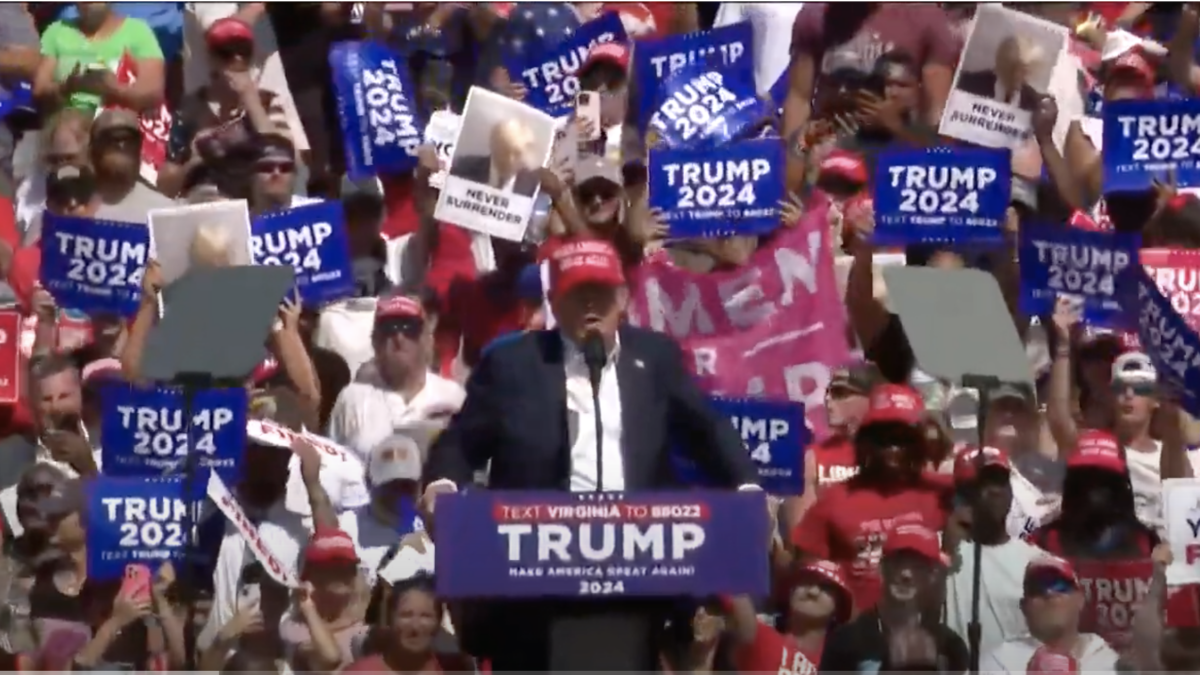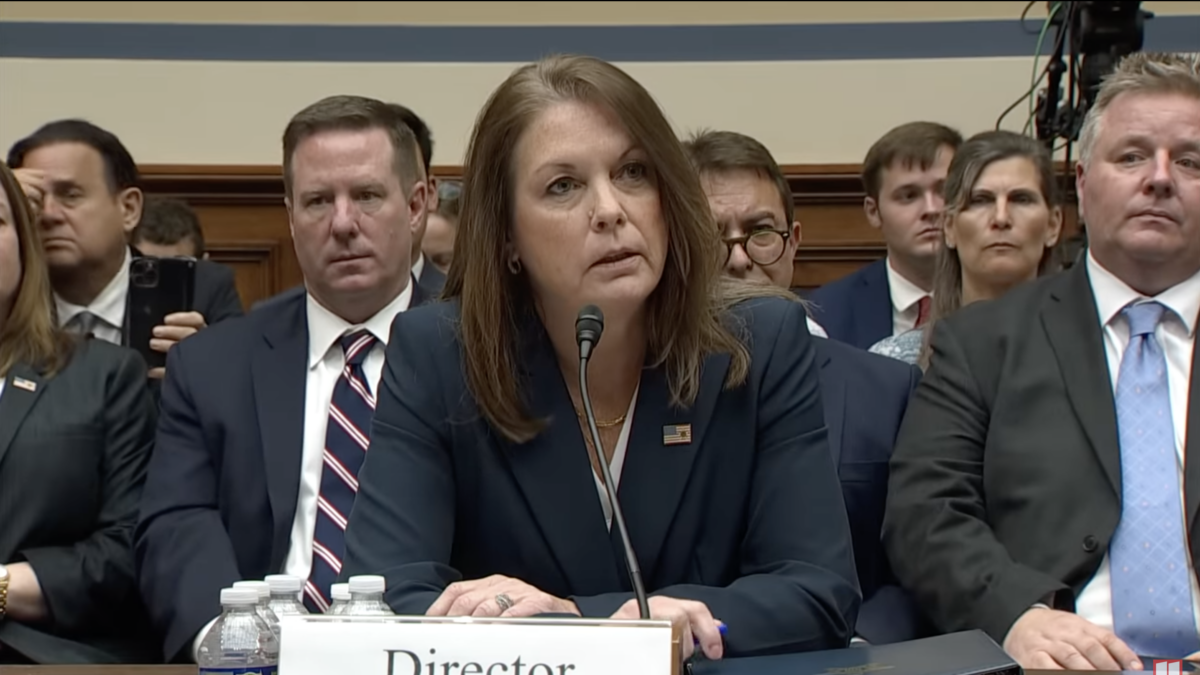
Reason magazine went out on a limb recently and published an article entitled “Privatizing Marriage Is a Terrible Idea,” by Shikha Dalmia. She presented an argument that is boldly counter-intuitive for many libertarians these days: that abolishing state-recognized marriage would increase government interference in our lives rather than reduce it.
Dalmia is absolutely correct about this. And it would behoove anyone who truly stands for limited government to consider her points thoughtfully and soberly. The libertarian default position that goes by the slogan “let’s just get the government out of the marriage business” is short on substance. If it sounds like a good idea, that’s probably due more to its mantra-like repetition than anything else.
Recently I wrote in The Federalist about Sen. Rand Paul’s pitch to end state-recognized marriage and replace domestic arrangements with ordinary contracts. I too explained why this idea would grow government rather than limit it. With the Supreme Court’s recent ruling in favor of same-sex marriage, I think we can expect the cry for abolishing civil marriage to get louder.
It’s important to note that the notion of abolishing civil marriage is also a mission of people on the far Left who are proponents of gigantic government. They include gender legal theorist Martha Fineman, Obama’s former regulatory czar Cass Sunstein, and journalist Masha Gesson, to name a few. It’s also a pet project of singles’ rights advocates, who tend to be fans of big government, although they say they want civil marriage abolished on the grounds that it is discriminatory against single individuals.
Government Must Recognize Marriage in Order to Leave It Alone
Part of Dalmia’s argument is based on insights in an article “Marriage Against the State,” written by libertarian Jason Kuznicki in 2011 for the Cato Institute journal Policy Analysis. He explores the pre-political meaning of marriage and identifies state recognition not as government involvement, but as a government guarantee to basically leave the family alone. He explains:
. . . to marry, to have children, and to raise and educate them according to the dictates of one’s own conscience are all a part of what it means to have a free society. By the same token, the government of a free society must respect those instances when this liberty has been exercised—and therefore perhaps must formally recognize them. In other words, perhaps the government should recognize marriages only so it can more effectively leave them alone.
Dalmia cites Kuznicki on one point in particular that should hit home, the presumption of child custody: “When a couple is in a recognized marriage, the children in their custody are presumed to be theirs—either because they bore them or adopted them. Privatizing marriage, maintains Kuznicki, would mean giving up this presumption.”
Abolishing state-recognized marriage would actually separate family members in the eyes of the law. Getting rid of state recognition of marriage is also key to “removing the veil of privacy” that protects spouses and the family, according to Fineman, who has argued for doing just that in her book, “The Autonomy Myth.”
Libertarians have a lot more discernment to exercise before totally signing on to the idea that ending state recognition of marriage actually keeps the government at bay. Kuznicki’s article and Dalmia’s recent essay are all-too-rare examples of libertarian writing that considers the potential pitfalls of that idea.
So, I’d like to offer some questions to ponder.
Five Questions About Whether Ending State-Recognized Marriage would Expand Freedom
1. How does lack of state recognition of marriage—replaced by a system of domestic partner contracts—actually shrink government involvement? As Dalmia notes, these partnerships still need to be authorized, recorded, and registered by the state, all according to government regulations. Trading in the simple marriage license for a system of contracts seems akin to trading in a simple flat tax for today’s Internal Revenue Service tax code. The government is and will be deeply involved in the law, rules, regulation, and enforcement of contract law. So, please explain and demonstrate how the government’s role in our lives would be minimized by ending state-recognized marriage.
2. How would you deal with possible legislation to license all parents, including biological parents, once the state no longer recognizes any union, including that of biological parents, as marriage? As stated above, the loss of state recognition of their union as anything more than an ordinary contract will deprive biological parents of the presumption of custody. This scenario seems to open us up to more state meddling in family life, as well as meddling by other parties—particularly when it comes to the child custody.
3. How does privatizing marriage preserve spousal immunity? At present, the government cannot force you to testify against your spouse. That is currently the law in all 50 states. But once the state no longer recognizes you and your spouse as a family unit—only as partners in an ordinary business-style contract—the case for spousal immunity significantly weakens. After all, what’s the rationale for immunity if a “marriage” is no more special than an ordinary contract, and “spouses” are merely associates, individual parties to ordinary contracts? It seems clear this would invite more state intrusion in family relationships, not less. It would invite less privacy, not more. If you disagree, please lay out your plan for preserving spousal immunity in a system without state-recognized marriage.
4. What do you make of the fact that Sunstein, the Obama administration’s regulator-in-chief from 2009 to 2012, argues for essentially the same plan? Sunstein is a long-time advocate of policies that grow government. He’s a big fan of nanny-state style “nudging” intended to modify everyone’s behavior. Clearly, your intent for limited government deviates about 180 degrees from his intent for big government. (Ditto with Fineman’s project to end state-recognized marriage.) So it’s worth connecting a few dots and figuring out what actual path the abolition of civil marriage puts us on. Sunstein has thought this issue through for a very long time and he no doubt sees a road to bigger government. Explain how he is incorrect.
5. How would abolishing state-recognized marriage promote freedom of association for all? The family serves as a buffer zone, or mediating institution, between the individual and the state. But logically, if the government does not have to recognize your marriage, it does not have to respect it. It does not have to recognize your family relationships at all, or your family as a unit. You are merely a separate party in an ordinary contract with someone else, as far as the state is concerned. While the contract with your associate might mutually recognize one another as a “spouse,” and claim that your biological children are “yours,” the state isn’t bound to do the same. And this legal separation in the eyes of the state is destined to reverberate through every other personal association in society. Please explain how abolishing state-recognized marriage protects the family and helps insulate individuals from an increasingly Leviathan state.









